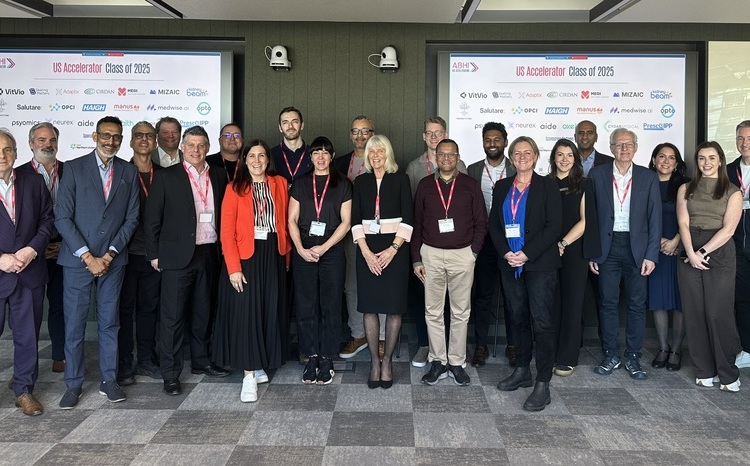DigitalHealth.London welcomes latest cohort of Accelerator programme
- 18 January 2022

DigitalHealth.London has selected 21 digital health companies to join the latest cohort of its flagship Accelerator programme which aims to help transform the capital’s NHS and care system.
Each of the companies has a digital solution or service that can step up to the task of meeting London’s health and social care challenges and help transform pathways across the sector.
The NHS-delivered programme is now in its sixth consecutive year with the 2020/21 Accelerator cohort included Bleepa – who is currently being used in a pilot at Sussex Integrated Care System – and Peppy Health who went on to win the Digital Health Rewired Pitchfest 2021.
Sonia Patel, chief information officer, NHSX, said: “The DigitalHealth.London Accelerator programme has established itself as an important player in supporting the NHS and social care to make the most of the opportunities digital health offers. I look forward to seeing the next group of innovators bringing their solutions to London’s NHS.”
The programme will see each of the 21 companies receive bespoke support and advice over a 12-month period, a programme of expert-led workshops and events as well as help in making meaningful connections between the innovators and NHS organisations with specific challenges needed solving.
For this year, the chosen companies will also benefit from international partnerships with two US Accelerators: Cedars-Sinai and Mass Challenge, giving companies the chance to network and showcase their innovations to international stakeholders.
Jenny Thomas, programme director, DigitalHealth.London, added: “The application process for this year’s programme was competitive as ever and as such, the final 21 companies truly are the ones to watch in the digital health space. We look forward to working with them and continuing to play our part in supporting the NHS and social care through digital transformation.”
The companies selected for the 2022 DigitalHealth.London Accelerator programme are:
- Babble: purpose-built telephone system for primary care patients and staff.
- Cibiltech: digital solutions in predictive medicine for transplantation.
- Convenet: B2B SaaS integration engine connection GP practices and NHS Spine.
- Dem Dx: AI clinical reasoning platform supporting frontline healthcare.
- EIDO: patient-centred, content-led digital solutions to support joint decision making.
- FIKA: staff training platform to promote good mental health through proactive skills development.
- Healthtech 1: solution to automate admin tasks in the NHS.
- Islacare: Clinical platform to revolutionise who conditions are monitored and treated.
- Jiva.Ai: low code/no code AI platform focused on multimodality and explainability, to test AI models.
- Limbic: AI therapy assistant.
- Little Journey: digital eSupport platform supporting children and families before, during and after healthcare interactions.
- Mahana Therapeutics: prescription digital therapeutics to empower patients.
- Panakeia Technologies: AI solutions for faster cancer diagnosis.
- Pungo (Joy): social prescribing software to address social determinants of health.
- Sapien Health: Digital clinic to help patients prepare for upcoming surgery.
- SiSU Health Group: machine-measured health check and digital health platform.
- Soar Beyond (SMART): workforce platform helping accelerate safe workforce capability development.
- Tefogo (Compassly): App for clinical competency assessments.
- Troglo (LVNDR Health): digital platform to improve sexual wellbeing for LGBTQ+ individuals.
- Ufonia: automated clinical assistant (Dora), to handle routine medical conversations on the phone.
- WYSA: ethical AI to make health support more accessible.





2 Comments
I hate to sound negative… But what about mental health? Where is the parity of esteem between mental and physical health products in relation to this list? I hope there will be some fringe benefits to arise for people living with mental health issues relative to the success of these products, although I cannot help but feel there is more that can be done.
On the contrary, there are a lot of poor quality mental health apps that don’t work already. This just parity of esteem working in reverse- the physical health apps catching up.
Comments are closed.